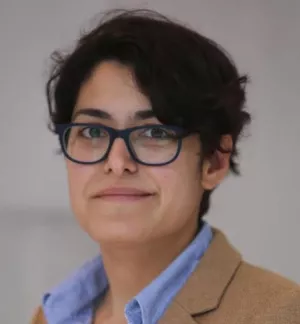The news of an interim deal regarding the Iranian nuclear dossier, reached between Tehran and the P5+1, has generated reactions from across the board. While some have been busy celebrating a constructive and balanced deal, and great step for the nonproliferation regime and international security, others have been more skeptical, some even denouncing the deal as a great mistake. In Iran, reactions have also covered the entire spectrum. Yet, the general trend seems to be one of optimism and satisfaction with a deal that many consider as a positive step to Iran’s rehabilitation in the community of nations.
Many Iranians have rushed to the Facebook pages of President Hassan Rouhani and Foreign Minister and chief negotiator, Javad Zarif to congratulate and thank them for what they perceive as a new hope. Others see the deal as an unwanted boost of energy and legitimacy for the Islamic Republic, which they argue was struggling after the contested 2009 presidential elections, the subsequent protests and crackdown, and former president Mahmoud Ahmadinejad’s second term in office.
Rouhani, who proudly reported having reached a deal before his 100th day in office, wrote a letter to the country’s highest authority, Supreme Leader Ayatollah Khamenei, where he congratulated him on the outcome of the negotiations. In his letter, the president commended the negotiations team’s ability to “call the world’s great powers to respect the Iranian nation’s right,” while respecting “all the regime’s foundations and redlines.” In his response, the Leader praised the negotiations’ team’s “success” and called for “resistance before excessive demands” to continue guiding the officials involved in the dossier.
Ali Larijani, the Chairman of the Iranian Parliament, also congratulated Rouhani, Zarif, and his team on the deal. He noted the importance of the next step in taking the country to the goal of sanctions relief. He criticized “some Western leaders” for stating that the interim deal “is a result of sanctions and pressure.” He stated that, it is in fact, Western governments, which have changed their course from ten years ago, as they came to realize that sanctions and pressure would not stop the Iranian people, instead leading to “the daily progress of Iranian scientists in the realm of peaceful nuclear science and technology.” He finally emphasized that the controversial mention of the right to enrich did not need “such creatures’ recognition” as it is granted to “all countries that are members of the IAEA and have adhered to the NPT.”
Former Iranian president Akbar Hashemi Rafsanjani’s interview with the Financial Times is notable for its apparent optimism. The conventional wisdom emerging is that reaching a comprehensive deal will be far more difficult than the interim agreement. Rafsanjani argues the reverse: while the interim deal required “breaking the ice, the second stage will be more routine. . . . Part of it was because talking to the US was a taboo. That taboo could not be easily broken.” Now that Iran has cleared the most significant hurdle, Rafsanjani raises hopes that the U.S. and Iran can deliver the next step.
The reformist newspaper Shargh reflected the news by emphasizing sanctions relief and halted sanctions. It features articles praising Iran’s ability to have an “indigenous nuclear technology” while reaching a point where it can sit in front of the world’s six leading powers and negotiate with them. Shargh further noted the skepticism of some in the U.S. Congress and the optimism expressed by the United Kingdom and International Atomic Energy Agency Director-General Yukiya Amano. Shargh quoted “an Iranian official” saying that, the United States would unfreeze eight billion dollars of Iranian assets. Hamid Rasaei, a conservative Member of Parliament, showing the newspaper, denounced what he called a “lie” and described the accord as a “poison chalice,[1] sweetened by the media.”
Etemad, another reformist newspaper, published the text of the interim deal. It includes a letter from Zarif, thanking the people who had gone to the airport to congratulate and thank him for the deal. It quotes Zarif saying that had the Shah’s regime remained in place, Iran would be able to have nuclear weapons, but that the Islamic Republic opposes them, believing these weapons do not make the country more secure. The newspaper reflects the words of the head of the Atomic Energy Organization of Iran, Aliakbar Salehi, according to which, “we saw how Libya had to give up on its program and you can see the situation in North Korea.” Salehi praises Tehran’s ability to “maintain its plans with power within the framework of international law.” It reports that the Zarif and Ali Larijani met in private to discuss the deal, quoting Larijani as saying that “the Iranian nation is happy about the agreement.”
Kayhan, the newspaper closest to the regime’s official line (and supervised by the Office of the Supreme Leader), which is generally more critical of rapprochement with the West, has remained more neutral toward the interim deal. Nevertheless, the newspaper’s headline suggests some skepticism, as it claims that the U.S. sees halting Iran’s nuclear program as the deal’s end. It further quotes various nonproliferation experts and states that “American and European analysts believe that the difficult and most important part of nuclear negotiations with Iran from now on will be when the U.S. will want to deal with Iran’s right to enrich.”
Ettelaat, another conservative newspaper, features a headline on “the greatest achievements of the nuclear deal from the viewpoint of experts.” It identifies several such achievements, including “the recognition of Iran’s nuclear rights,” the “change in the international environment” regarding the country, and the reinforcement of the country as “a regional power.” The newspaper further downplays the criticism faced by the deal and its impact, stating that U.S. President Barack Obama has reacted strongly to such criticism.
Regime opponents, or at least those who do not actively support the regime, also fall in two categories: those who condemn the deal and those who view it positively. The first category encompasses those who view the deal as merely extending the life a regime they consider as illegitimate and corrupt. Some have gone so far as to call it the interim deal the “new Turkmenchay.”[2] These views consider the nuclear dossier as a much-needed distraction from the Islamic Republic’s human rights’ violations. Likewise, former president Abolhassan Banisadr,[3] called the nuclear dossier the third crisis created by the Islamic Republic (after the hostage crisis and the Iran-Iraq War), which it terminated by taking the “poison chalice.” In an open letter to the Iranian people, the former president criticizes the “hundreds of billions of dollars of national wealth” wasted by regime. He warns his compatriots that “the deal has left no doubt that Iran is in a swamp.” He describes the deal as “in benefit of the union between Israel, the Saudis, Egypt’s coup-plotters and sheikhs, and American neo-conservatives.”
The second category is mainly composed of Iranians who, despite opposing or not supporting the regime, believe that the deal is a step toward progress. Indeed, regardless of where they stand on the political spectrum, most Iranians seem to oppose the sanctions regime. As such, constructive steps toward sanctions relief are welcomed.
The interim deal seems to have received the endorsement of key players in Iranian politics, including the Supreme Leader. Most of the views reflected from within the regime, and more broadly, the Iranian population, seem to be positive. Many hardliners have also praised the deal, or have not commented on it. This is due to several factors. First, people seem to be generally optimistic about the direction the country is heading. The deal is viewed as the beginning of less sanctions and the end of a looming threat of war, which worried many Iranians. Second, from a regime perspective, even those who may not be as optimistic, have decided not to speak, in an effort not to contradict the Supreme Leader. Third, the deal, as argued by Matthew Bunn, undermines the hardliners’s arguments. Nevertheless, the hardliners are waiting for excuses to return with more and stronger accusations than before. Such excuses could range from another round of sanctions being prematurely passed by Congress or the perception that U.S. officials may be playing a double game. This has already been criticized by various Iranian media outlets, following some statements made by U.S. Secretary of State John Kerry (both during and after the negotiations).
[1] This idiom was used by the Islamic Republic’s founder, Ayatollah Ruhollah Khomeini, when after eight devastating years, he agreed to end the war with Iraq in 1988.
[2] The Treaty of Turkmenchay was a treaty signed between Persia and Russia at the end of the Russo-Persian War (1826-1828). The treaty, widely perceived as one of the greatest capitulations of the Persian Empire in the past 200 years, stripped the country of some of its north-western territories in the Caucusus, including those constituting modern-day Armenia and Azerbaijan, in addition to those covered by the 1813 Treaty of Gulistan (Azerbaijan, Daghestan, and Eastern Georgia).
[3] Banisadr was the Islamic Republic’s first president. He was impeached by the Iranian parliament in 1981, and has since become a vocal critique of the regime.
Tabatabai, Ariane. “The interim deal: views from Iran.” November 27, 2013


